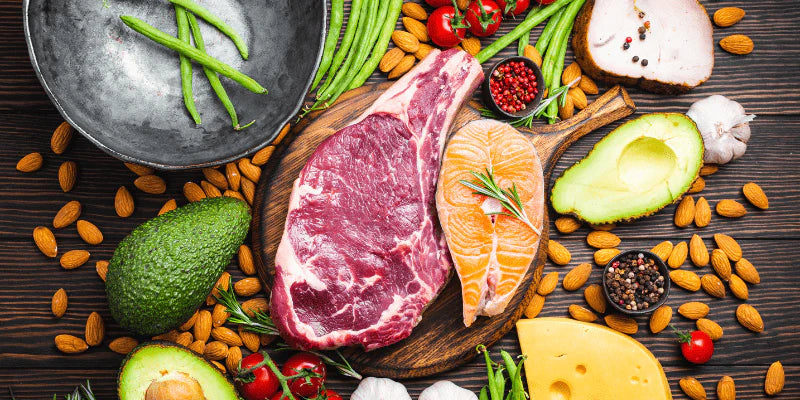LEUCINE - EVERYTHING YOU NEED TO KNOW
What is L-Leucine
L-leucine is an essential amino acid. This means that the body cannot produce it, and it must, therefore, be ingested with food. It is also a "branched chain" amino acid. Foods with leucine are, therefore, especially important for building proteins and muscles and for maintaining glycogen stores. (University of Rochester)

WHERE IS LEUCINE FOUND?
Numerous foods are rich in leucine:
• Fish: shrimp, herring, trout, salmon, tuna, halibut, mackerel, redfish.
• Meat: chicken breast, beef, pork, veal, roast chicken, liver.
• Legumes: lentils, chickpeas, beans, quinoa, peas.
• Dairy products: Parmesan, Edam, Gouda, Camembert, Brie and cream cheeses.
• Nuts: cashews, almonds and peanuts
• Cereals: Spelt, oats and millet
EFFECTS OF LEUCINE
Many positive effects are attributed to leucine. It prevents muscle breakdown after physical exertion and is an energy supplier for the muscles. In addition, L-leucine stimulates insulin release, leading to the body receiving more energy and regulating blood sugar. Leucine can also slow down or even inhibit the breakdown of glucose during exercise so that the muscles get enough energy. The amino acid also inhibits the release of stress hormones and improves the healing of wounds and joint disorders. Finally, L-leucine also supports fat burning and can help with weight loss (University of Rochester).

NASSIM JAMALZADEH:
"It is important to know that L-leucine is not only important for athletes but also for people who want to achieve weight change because leucine can not only stimulate the growth of muscle fibres but is also said to contribute to better fat burning by increasing the basal metabolic rate.
So feel free to plan L-leucine into your diet plan. If you don't know the best way to do it, feel free to try our Burn Baby Burn Vitamins. "
FAQs about Leucine
FAQs about Leucine
No recommended daily requirement has yet been established. However, various studies have shown a guideline value of 10 to 50 milligrams per day and kilogram of body weight. However, there are two factors to consider here: individual requirement and physical activity. People who regularly exercise or perform physically demanding work should increase their L-leucine intake.
Taking too much leucine via supplements over a long period can cause nausea, vomiting, diarrhoea, and abdominal pain. A very high dose of leucine can also cause low blood sugar (University of Rochester).
In leucine deficiency, the muscles and liver, in particular, are disrupted. Faster, physical exhaustion and fatigue become noticeable. In addition, wound healing is worsened, fat gain possibly increased, and growth delayed.
Leucine is interesting not only for bodybuilders but also for endurance athletes due to its multiple effects. People who want to lose weight or suffer from certain health problems can also benefit from the amino acid.
Let customers speak for us
Our bears with L-Leucin
Our bears with L-Leucin


















